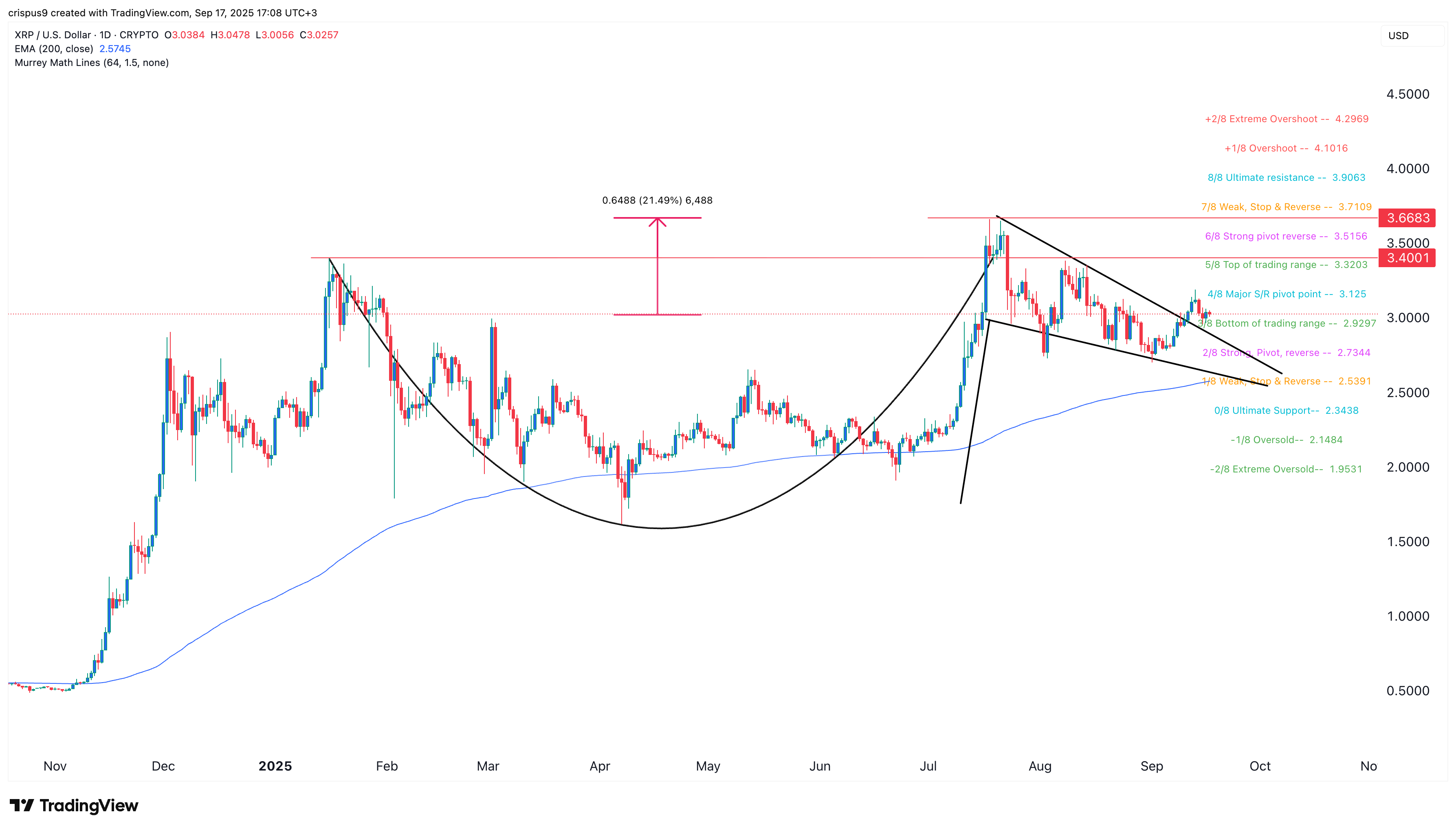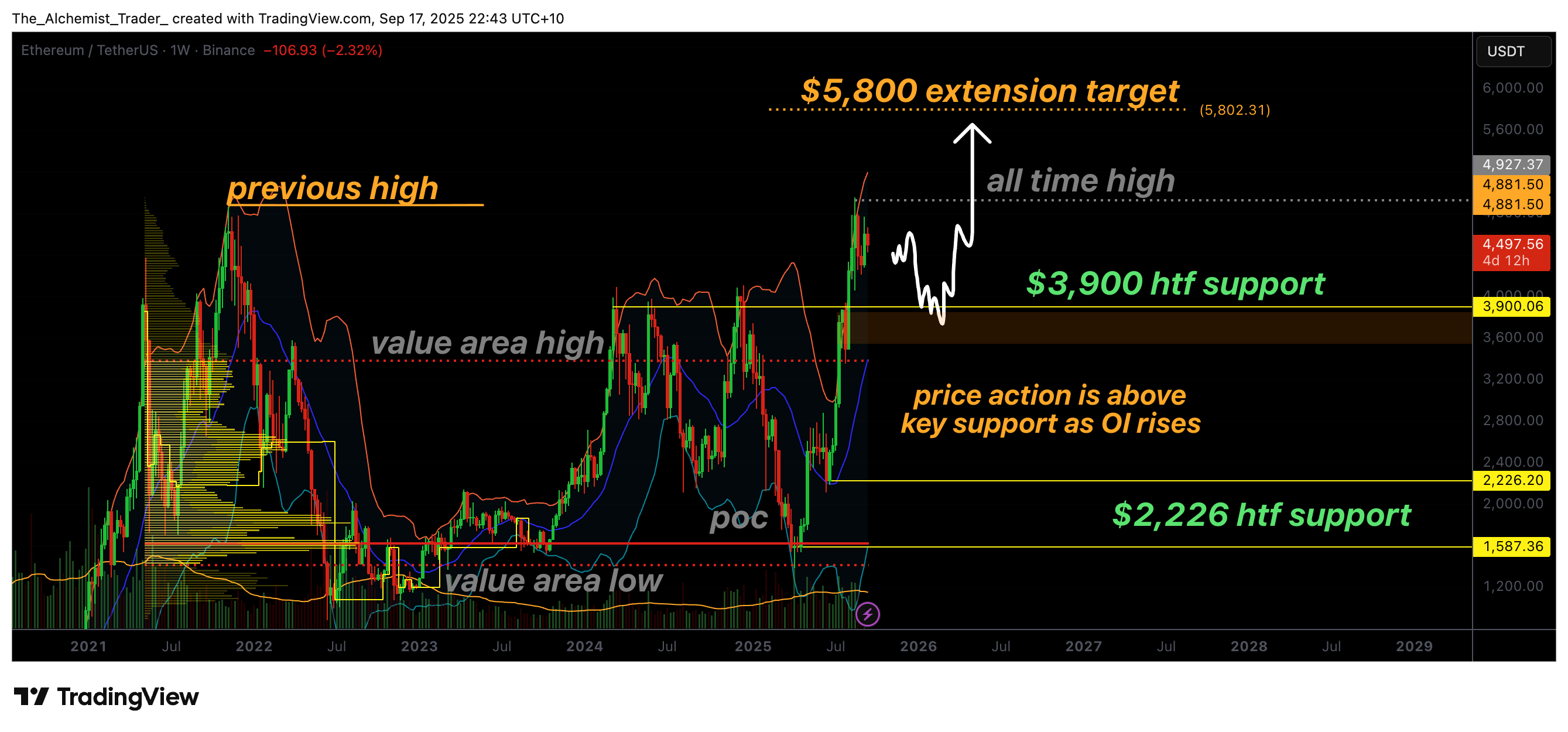Survival of the healthiest: Creating a successful crypto
Disclosure: The views and opinions expressed here belong solely to the author and do not represent the views and opinions of crypto.news’ editorial.
Darwin’s theory of evolution suggests that living organisms best adjusted to their environment are the most successful at surviving. Organisms struggle against each other in competition for resources that are necessary for existence within their environment. The same principle can be applied to cryptocurrencies. In a volatile, decentralized world characterized by competition among networks, only the healthiest, most well-structured ecosystems survive. Developers should, therefore, focus on developing a ‘healthy’ underlying network for crypto to ensure they stand the best chance of surviving the next evolutionary cycle.
What makes a crypto ‘healthy’?
The nature of cryptocurrencies is vastly different from that of living organisms, so the resources that make a crypto ecosystem ‘healthy’ differ from those that make a living organism ‘fit.’
Cryptocurrencies are decentralized virtual assets existing in the web3 space, so they rely on many individual users to interact within this ecosystem to create a healthy store of value. Like fiat currencies, without this social network made up of token holders, a cryptocurrency asset has no value. Each cryptocurrency can represent its own ‘culture’ through a transactive coin, where value is rooted in the psychology of its holders. This is mirrored by the fact that social events, user perception, and supply often impact the value of the token.
Since all cryptocurrencies derive value from community and user interactions within the web3 environment, they compete within the same web3 parameters for user attention and transactions. The parameters used to define a ‘healthy’ crypto network relate to token holder activity and include the principles of distribution, variety of holders, variety of transactions, and token flow, where there must be a sustainable number of diverse transactions.
It is not just about having user activity, but the right kind. If one individual lived in a nation-state as its sole citizen with a bank account of $100 million, the GDP per capita of that nation would be the best in the world—yet its chances of survival would be non-existent. Since there is only one holder, there would be no scope for transactions or a variety of holders, rendering it defunct and with no value.
Whilst living organisms may be competing for things like food and resources in the real world, cryptocurrency tokens are competing for transactions and user attention in the web3 world.
Since cryptocurrencies rely on blockchain, an open-source ledger storing all transactions, it is possible to map all transactions between wallets within an ecosystem and measure the parameters that determine a ‘healthy’ network. In practice, we can see which token ecosystems are developing ‘healthy’ networks and which ones are slowly becoming extinct. Over time, any patterns that align with network failure, including manipulation or crime, like any other asset class, can increase the risk relating to a token. With this data, we can rate and rank ecosystems, determining which ones are winning the competition for survival.
Bitcoin & Matic: A success story
Bitcoin (BTC) has been able to construct a healthy network. It is estimated that 106 million people around the globe own Bitcoin, making it the most widely held token. Significantly, Bitcoin now represents 58% of the total value of crypto, showing that amongst web3 users, Bitcoin is overwhelmingly the most popular store of wealth. Not only is it widely held, but it is also widely transacted. Throughout the first half of 2024, Bitcoin’s blockchain regularly had over 400,000 transactions a day. This sustainable and high transaction volume is reflected in Bitcoin’s pricing. Whilst it has experienced several devaluations, it has been sitting above $50,000 for the past nine months, and it is one of the most stable cryptocurrencies in the market, having recently surpassed 90,000 USD.
Similarly, Polygon (MATIC), has constructed a healthy network. Around 633,588 wallets hold Matic, making it a widely held token. It is also widely transacted, in varying amounts and for a variety of reasons, making it robust. Throughout 2024, Matic has regularly had over 4100 transactions a day. This sustainable and high transaction volume is reflected in Matic’s 24-hour trading volume, which sits at 7.76m USD.
Dogecoin: A rapid unraveling
Although Dogecoin (DOGE) has rallied hard in recent years, it has failed to establish a ‘healthy’ network. At certain times, it has experienced a large amount of user activity, which has driven up prices momentarily. This includes early 2021, when Dogecoin’s price increased dramatically by 23,000%. However, the number of transactions that drove this price increase was not sustainable. The user activity here was driven by short-term hype, and the transactions taking place were not diverse. The majority of users were interacting with the network purely to ‘pump and dump‘ rather than for any long-term, sustainable utility. This was fuelled primarily by Elon Musk simply tweeting about the token, creating an anomalous spike in price. This rally demonstrated the token’s immense volatility and lack of an entrenched perception by users that Dogecoin has value rooted in something greater than a singular point of interest. Whilst it is still held by around 4 million people, and it still has relatively high levels of transactions, in October 2024, around 250,000 daily transactions. However, a significant 82% of the total circulating Dogecoin is held by a shockingly small amount of wallets, only 535, demonstrating a lack of variety of transactions.
Dogecoin is experiencing another surge thanks to the recent US election result and Elon Musk’s appointment to Trump’s Department of Government Efficiency. Yet, while it has moments of high price, these have not been driven by sustained and meaningful growth. Where Dogecoin has been unable to create a sustainable number of transactions from a diverse array of wallets, Bitcoin and Matic have been able to do so. The evidence is in Bitcoin and Matic’s comparatively stable growth and Dogecoin’s volatility. While DOGE is still holding on, this is driven by hype; like the dinosaurs that came before us, it will likely become extinct.
Focus on the network, not the price
The success of cryptocurrencies and sustainable price increases rests on the health of the web3 network underpinning the token. Rather than focusing on driving the price up for the sake of price, a cryptocurrency developer should, therefore, focus on developing a ‘healthy’ underlying network by harboring sustainable and diverse transactions. This will lay the groundwork for tokens to attract users, beat off competing networks, and ultimately lead tokens to grow in price.





